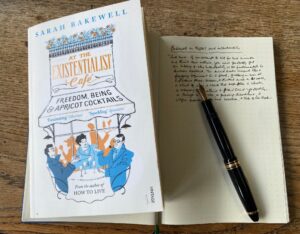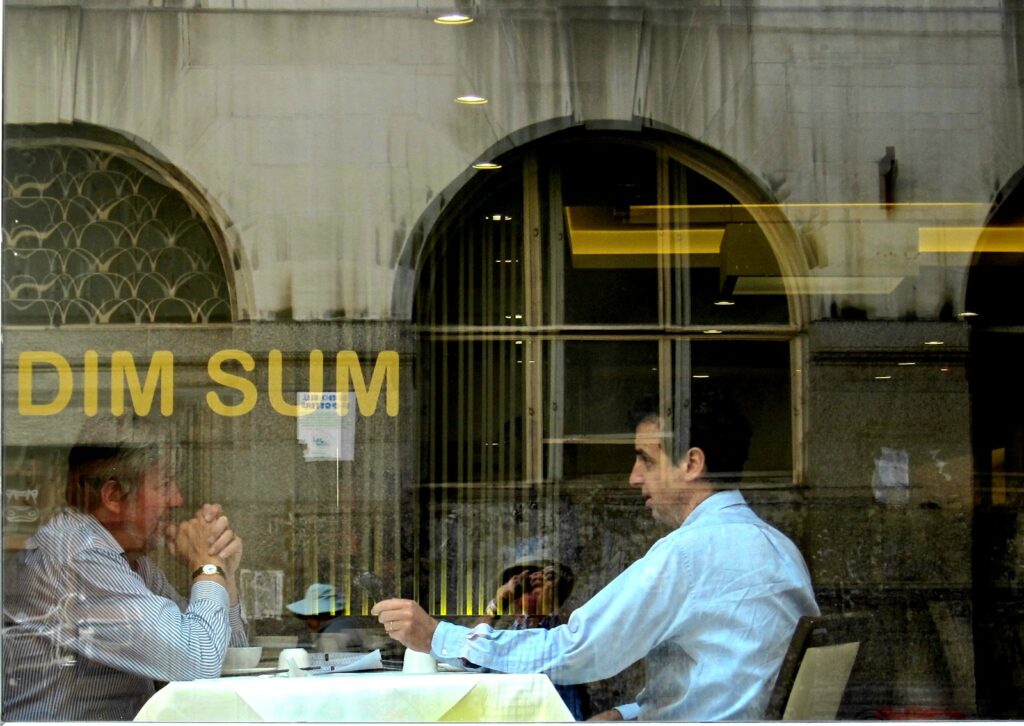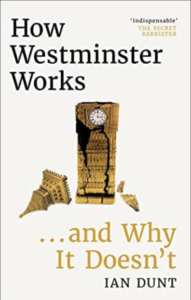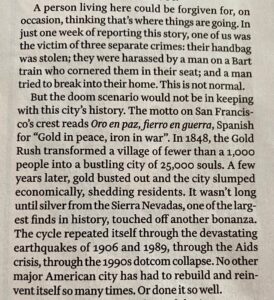Flora and Fauna of East Anglia
A real basket-case, seen yesterday in a nice farm just outside Cambridge.
Quote of the Day
”There is no trap so deadly as the trap you set for yourself”
- Raymond Chandler
Musical alternative to the morning’s radio news
Eric Clapton | Walkin’ Blues
Long Read of the Day
Why So Many Conservatives Feel Like Losers
You may have noticed that some kind of wacky US-funded conference about ‘real’ conservatism took place in London recently. Fortunately for the rest of us, Helen Lewis was there. And her dispatch is a thing of beauty and a joy for ever.
Sample:
The first day of the conference was dominated by one subject: babies. In the opening session, Miriam Cates, a Conservative member of Parliament, identified low birth rates as the biggest problem facing the West, attributing the phenomenon both to concrete policy challenges and a liberal individualism that she deemed “completely powerless to resist a cultural Marxism that is systematically destroying our children’s souls.”
Over the next two days, speakers offered a lot of this sort of thing—what George W. Bush might have described as “some weird shit.” Cates’s fellow Tory Danny Kruger devoted part of his speech to condemning a “new religion” of “Marxism and narcissism and paganism.” The historian David Starkey claimed that critical race theorists “do not care about Black lives, they only care about the symbolic destruction of white culture.” I began to keep score of how many speakers asserted that Britain had been through a cultural revolution, the evidence for which was that students are quite left-wing and annoying. Over and over, this was attributed to “indoctrination.”
Or this:
Undeterred by outside criticism, Hazony played the hits, attacking “woke neo-Marxism” and ending with an exhortation that we should all have more children and become more religious. He was in happy company because the next speaker was Jacob Rees-Mogg (six children, the last of whom is named Sixtus). Rees-Mogg, a devout Catholic, started playing a caricature of an English toff in early life and has not stopped yet. His speech took in Saint Thomas Aquinas, Charlemagne, the Treaty of Westphalia, habeas corpus, Edward the Confessor, and occasional snatches of Latin. “Are DeSantis speeches like this?” texted a friend on the other side of the hall. “Slightly less about Aquinas and the French monarchy,” I replied. “Slightly more about Disney.”
Magical stuff. Do read it.
Ian Hacking RIP
The great Canadian philosopher of science has passed away at the age of 87.
There are two nice early obituaries in the NYT and the Globe and Mail
The last thing by him that I read was his terrific Introduction to the 50th anniversary edition of Thomas Kuhn’s The Structure of Scientific Revolutions, one of my favourite books. (I wrote a short essay about it when the anniversary edition appeared in 2012.)
Brad DeLong’s question
From his blog:
Text-producing Generative ChatBots are, in a sense, somewhat tuned (by actual human feedback) Internet simulators: they show you what the Internet would be likely to say in response to the prompt that you have fed it, based on its assessment of what pages on the Internet are “close” to your prompt. (Much of the magic is in the definition and metric of “close” that the neural network constructs for itself—a metric that is largely inaccessible and largely incomprehensible to humans. But I digress.) That makes text-producing Generative ChatBots a reasonable way of taking the temperature of the conventional wisdom of humanity, or rather of that part of humanity that is compelled by mercenary, addiction, or egocentric reasons to write on the Internet.
But what are picture-producing Generative ImageBots doing. Are they too Internet simulators? Are they a way of taking the temperature of… not the conventional wisdom… rather the id of humanity, or at least of that portion of humanity compelled by mercenary, addiction, or egocentric reasons to put pictures on the internet and write captions for them?
He goes on to try some prompts on Stable Diffusion (one of the Generative AIs that do images). The results are not very interesting (IMHO) but his question is nevertheless an insightful one.
Also, I like his formulation that LLMs “show you what the Internet would be likely to say in response to the prompt that you have fed it”.
My commonplace booklet
Our delivery Yacht had a serious interaction with a large pod of Orcas
Absolutely riveting nine-minute video of a scary encounter in the Straits of Gibraltar.
If I had a yacht, I’d like this guy to be its captain.
This Blog is also available as a daily email. If you think that might suit you better, why not subscribe? One email a day, Monday through Friday, delivered to your inbox. It’s free, and you can always unsubscribe if you conclude your inbox is full enough already!
















